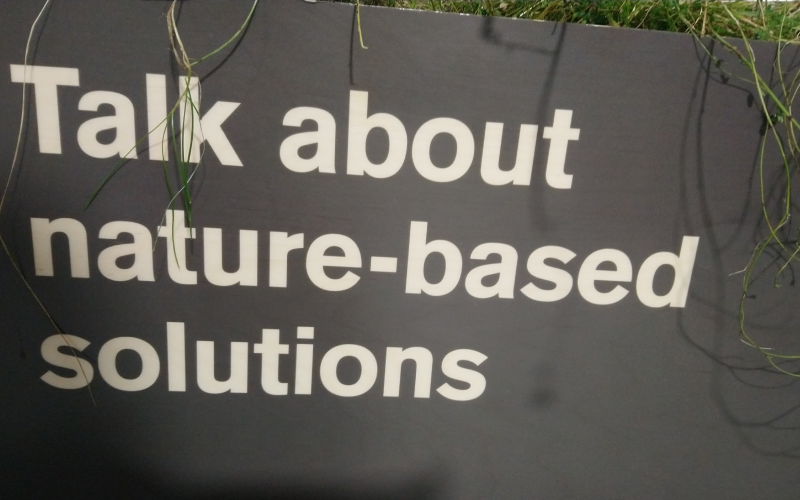You are here
- Home
- Neoliberal nature alive and well
Neoliberal nature alive and well

COP26 has been bringing together parties from across the world to accelerate action towards the goals of the Paris Agreement and the UN Framework Convention on Climate Change. The Open University has official observer status at COP26 and is learning from the conference to inform the university’s wider sustainability mission and inspire students and staff to take action. Here are some of the conference’s highlights, as told by our Open University observers.
COP26 Diary - 2 November: Dr Kate Symons, Lecturer in Global Development.
Nature-based solutions are everywhere at COP26. Nature-based solutions is a really broad term, encompassing ideas like payments for ecosystem services (where people are incentivised to protect forests or mangroves for instance, rather than destroy them), using nature in climate mitigation and adaptation, along with broader ideas like learning from nature in design and industry.
My experience with nature-based solutions at COP today (2 November) was at a panel discussing how the private sector and conservation organisations can work together to use nature-based solutions. The argument from this panel was that companies like Unilever can work with charities like Nature Conservancy to create carbon credits through projects like reforestation in Brazil, which can be sold to polluting sectors to enable them to continue business activities while still meeting net zero goals. The argument is that these credits are necessary because some sectors will be unable to decarbonise, and shouldn't this activity be offset in a way which provides livelihoods and reduces poverty. In this sense, nature-based solutions are posited as 'win-win' solutions for sectors like airlines and heavy industry, and underpin the net zero commitments on which COP26 is built.
The criticisms of such solutions are well-rehearsed. Carbon offsets have been likened to Catholics buying indulgences to offset future sins. They can be designed to allow rich societies to consume as normal while asking people in developing countries to alter livelihoods to make way for nature-based projects. There is a large body of research which debates the social justice of such schemes, especially highlighting the question of land rights and tenure for traditional and Indigenous communities. At the same time, the nature-based solutions agenda is a broad church with potential for pluralistic, rights-based and equitable initiatives which genuinely restore and protect ecosystems. It all depends on your starting point. I would hope for nature-based solutions which start from the perspective of secure land tenure, community rights and co-creation of projects rather than the need to protect the net zero commitment of large corporations, and that is what I will be on the look out for at this COP.
Related articles
- Accelerating Ambition and Impact: EAUC Conference 2024 30th July 2024
- Driving change: Imagining a different transport future 23rd July 2024
- Donating items to MK Food Bank 21st July 2024
- Butterflies as indicators of our impacts on nature - Climate Perspectives 9th July 2024
- Education for Sustainable Development Changemakers 8th July 2024